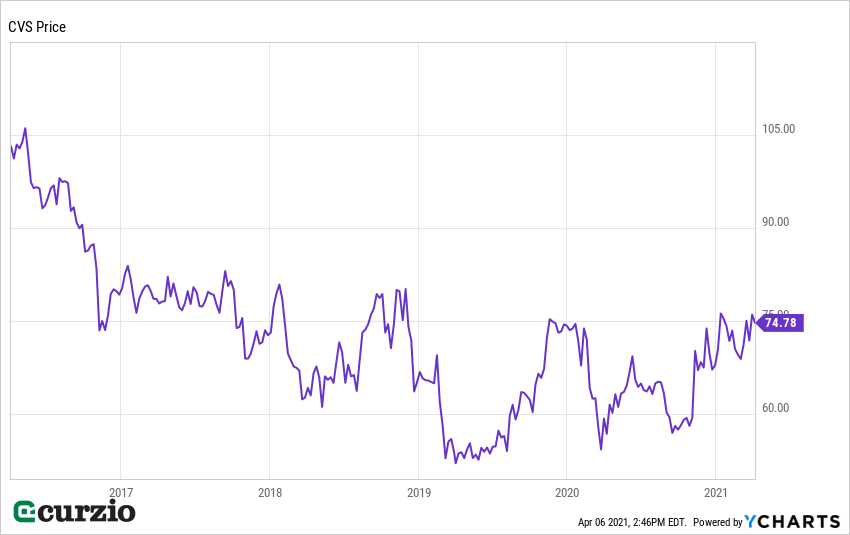While we saw a lot of mass vaccination sites pop up in 2021 as vaccines saw their initial rollout, this won’t continue to be the case. Instead, like you do for the flu shot, you’ll go to your doctor’s office, pharmacy, or drugstore for a yearly COVID booster, suggests Genia Turanova, editor of Unlimited Income.
And CVS Health (CVS) is set to be one of the main beneficiaries. The company also has a new CEO as of February 1. Karen Lynch isn’t an outsider. Before signing on as CVS’s CEO, Karen Lynch oversaw Aetna, the insurance business that CVS bought for $70 billion a couple of years ago.
One of Karen’s key focuses in her new role will be to push the company’s consumer-centric evolution. A centerpiece of this new strategy is the ongoing transformation of CVS stores into HealthHUB locations. These concept stores differentiate CVS from its competitors. Customers can get treatment from a nurse practitioner for basic illnesses like a cold or flu.
The HealthHUB model allows CVS to expand on its already existing—and successful—Minute Clinic model. The company expects to have 1,500 operational HealthHUBs by the end of this year. The sites will also be equipped for telehealth visits.
HealthHUBs will help CVS sell more prescriptions while generating extra revenue on knicknacks and necessities. Put simply, the more people that visit CVS, the more sales it makes.
The HealthHUB idea isn’t new. The plan to use more floor space for healthcare services was a part of a way to integrate Aetna into CVS’s business. Here’s a quick summary of all the reasons to own CVS today:
- CVS is a leader in COVID response and vaccine efforts—and will benefit from this leadership for years to come.
- CVS isn’t expensive: The stock trades at a forward price-to-earnings ratio (P/E) of just under 10—while the stock market has a P/E around 23. Meanwhile, analysts expect profit growth of 6%-plus annually for the next few years. If all goes according to new CEO Karen Lynch’s plan, these numbers might prove conservative. In any case, the stock is very cheap.
- At 2.7%, CVS’s dividend yield is more than 1% better than the market’s (just 1.5%). This is an example of when a higher yield means better value.
- Since setting a high of about $111 back in 2015, and subsequent years of declining price action, CVS’s share price is finally on the mend—up 34% year-over-year, and 9% so far in 2021.

There’s still a lot of ground left to cover… but it’s all within reach for CVS, thanks to the competitive advantage it gained over its competitors during the COVID crisis. Buy a full position in CVS Health for its 2.7% dividend yield and growth potential. Do not pay more than $80.










